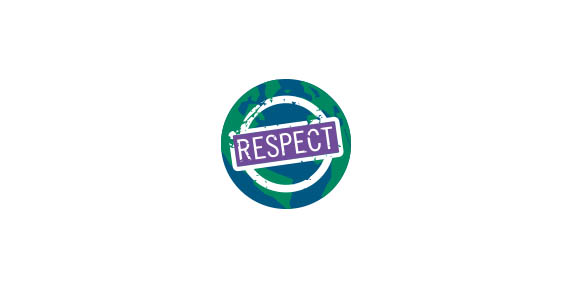





2018 Webinar Speakers
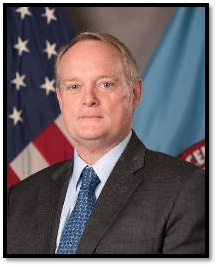
Ambassador Adam Blackwell began his diplomatic career in the Canadian Foreign Service Democratic Republic of the Congo, Nigeria and Kenya in 1985. He served in a variety of assignments, at headquarters and in the field, including as Minister Counsellor in Mexico and at the Permanent Mission to the United Nations in New York. He then continued his diplomatic career in the region, serving as Ambassador Extraordinary and Plenipotentiary to the Dominican Republic from 2002-05 and as Assistant Secretary of Strategy and Services in the Bilateral Relations Branch. Ambassador Blackwell worked at the Organization of American States at their headquarters in Washington, DC until Oct 2015. Starting as Assistant Secretary of Finance and Administration (Treasurer) in 2006, Mr. Blackwell was then Secretary for External Relations in 2008 and Secretary for Multidimensional Security from July 2010 to January 2016. During his career, Mr. Blackwell has participated in and led several election observation missions as well as received numerous awards and honors. Most notable of these are; The Order of Merit of Duarte, Sanchez and Mella Grand Cross with Silver Breast Star, of the Dominican Republic and the Ministers Award for Management (1995). He also was a contributor and coordinator of the 2013 OAS Drug Report. Mr. Blackwell is fluent in English, French and Spanish. Adam Blackwell served as Ambassador in Residence at the William J. Perry Center for the Hemispheric Defense Studies (NDU). Currently he is the Vice President at the Development Services Group, building high value networks to help professionals build capacity, forge new partnerships and effect meaningful behavioral and policy change. He is also the Chair of the Managing Board of Techtrace S.A. A Swiss company active in the fight against illicit trade. Chair of the Meta-Council on the Illicit Economy for the World Economic Forum (WEF), a member of the Board of the Trust of the Americas, a member of the Commission to Reform Public Security in Honduras and a member of the Technical Coordinating Committee to manage the Peace Process in El Salvador. Ambassador Blackwell is also an active participant and presenter in international fora such as; Davos, Chatham House, the Ditchley Foundation, Brookings Institution, the Wilson Center as well as regional and annual meetings of the WEF.
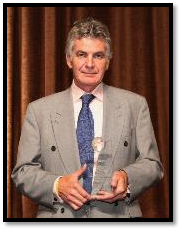
Peter J. Warrack, M.Scs, CAMS, CBP, CFE, is the Director, Anti-Money Laundering (AML) and FINTEC Advisory, and Compliance Officer with the Bank of Montreal (BMO). He also manages ‘special projects’ and advises on major AML/CFT investigations and is a Certified Bitcoin Professional. He is formerly the Director AML Advisory and Director Risk Intelligence at BMO. Prior to his current role he built two highly capable AML Financial Intelligence Units (AML FIUs) at the Royal Bank of Canada (RBC) and BMO often described as “Universities of AML”. Peter was recruited to Canada by RBC leaving behind a successful career in law enforcement in the UK. In Canada, he successfully built and pioneered RBC’s intelligence –led fraud prevention approach setting the standard for ‘the culture of intelligence’ and intelligence-led analytics before specializing in AML. Since coming to Canada, Peter has been a proponent of joint / law enforcement investigations and actively involved with law enforcement in the legal sharing of information and best practices, which has resulted in numerous arrests and the interdiction of crime. In January, 2016 Peter initiated a joint public/private sector partnership to address human trafficking and sexual slavery in Canada, collaborating with law enforcement, FINTRAC, peer banks, government, and NGOs, the first of its kind in Canada and the subject of much and continuing success. Peter frequently presents and publishes on subjects including intelligence, fraud, money laundering, risk, human trafficking, and AML/ Blockchain is often referred to as a practical academic and thought-leader. His contribution to the AML profession was recognized by his peers in 2011 when he received the Association of Certified Money Laundering Specialists (ACAMS) Professional of the Year Award. In 2016 Peter obtained his Certified Bitcoin Professional designation and was a guest speaker at the largest blockchain training conference in the world held in Toronto. Peter’s work in providing thought leadership in this area and the links between cryptocurrencies and human trafficking continues in liaison with industry peers, law enforcement, and the technology sector internationally.

Robin Cartwright is a former 15-year partner at KPMG, where he led KPMG’s global anti-illicit trade capability for the pharmaceutical, tobacco and drinks industries. He measured illicit trade in Europe, Asia, Australasia and the Near East, where KPMG’s published reports gathered significant acceptance. Robin also led programmes selecting and implementing supply chain security solutions in combatting illicit trade, drawing on track and trace technology. He is the author of ‘The Hidden Battalions: the Private Sector Impact of Organised Crime’ a study for the Global Initiative Against Transnational Organised Crime. He is also a senior adviser to Social Finance, the social investment boutique which focuses in outcomes-based social projects in criminal justice, social care and mental health. He speaks regularly on the impact of illicit trade at conferences run by OECD, WCO and IISS. Whilst at KPMG Robin also pioneered an approach to risk management for boards, working with Network Rail on enterprise-wide risk management. Robin joined KPMG from the Ministry of Defence where he was a principal in intelligence and security related to countering terrorism.
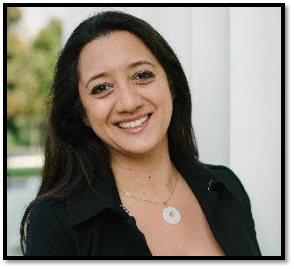
Tuesday Reitano is the Deputy Director of the Global Initiative against Transnational Organized Crime and a senior advisor at the Institute for Security Studies in Pretoria, where coordinates research for five organized crime observatories in Africa. Tuesday was formerly the director of CT MORSE, an independent policy and monitoring unit for the EU’s programmes in counter-terrorism, and for 12 years was a policy specialist in the UN System, including with the UN Development Programme (UNDP), the UN Development Group (UNDG) and the UN Office on Drugs and Crime (UNODC). Tuesday is an expert on fragile states and development working both with states, civil society and at the community level to strengthen resilience to transnational threats, promote sustainable development and the rule of law. Tuesday has authored a number of policy orientated and academic reports with leading institutions such as the UN, World Bank and OECD on topics ranging from organized crime’s evolution and impact in Africa, on human smuggling, illicit financial flows, and the nexus between crime, terrorism, security and development. Tuesday is the lead author of a forthcoming 2018 OECD flagship publication: Illicit Financial Flows: Criminal Economies in West Africa, the co-author of Migrant, Refugee; Smuggler, Saviour, a book published in 2016 by Hurst on the role of smugglers in Europe’s migration crisis, and the lead editor of War on Crime: Militarized Responses to Organised Crime, a book published by Palgrave McMillan in 2017. She holds three Masters Degrees in Business Administration (MBA), Public Administration (MPA) and an MSc in Security, Conflict and International Development (MSc). Tuesday is based in Geneva, Switzerland, with her family.
Brian Huerbsch is the global organized crime research lead and an anti-trafficking specialist at Thomson Reuters World-Check. Prior to joining World-Check, Brian was an enhanced due diligence case manager for IntegraScreen™ and worked in the Financial Crimes Enforcement Network’s (FinCEN) Illicit Financial Methodologies unit. He holds an MA in Global Security Studies from Johns Hopkins University.
(Webinar: Illegal Logging and Human Trafficking)

Channing May is a policy analyst at Global Financial Integrity, focusing on the financial aspects of transnational crime. Her March 2017 report, Transnational Crime and the Developing World, explores 11 different criminal markets: their value, dynamics, impacts on developing countries, and recent developments. She has an MA in International Affairs from American University’s School of International Service, where she pursued coursework on transnational organized crime and terrorism. Prior to joining GFI, Channing worked in banking, and has taught English as a second language (ESL) in South Korea and Morocco. Channing has a Graduate Certificate in French Translation from American University and received a BA from the University of Wisconsin. She is a Certified Anti-Money Laundering Specialist (CAMS).
(Webinar: Illegal Logging and Human Trafficking)
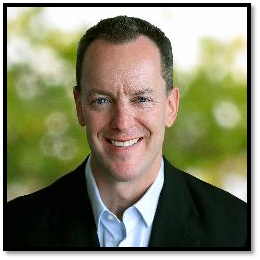
Chris McLaren leads Forest Stewardship Council US’s marketing and business development efforts, having helped corporations make the most of sales and marketing opportunities and challenges for more than 20 years. Prior to joining FSC, Chris led U.S. marketing and sales at Aimia, a leading global loyalty marketing solutions provider; at Wunderman, a WPP agency, providing strategic services to Best Buy and Coca-Cola; at Gage, serving Fortune 500 clients including Microsoft, Walmart, Dell, and 3M; and at Target, providing marketing strategy and management consulting services. Chris holds Bachelor’s Degrees in English and Graphic Design from the University of Wisconsin-Madison and an MBA from the University of Minnesota’s Carlson School of Management.
(Webinar: Illegal Logging and Human Trafficking)
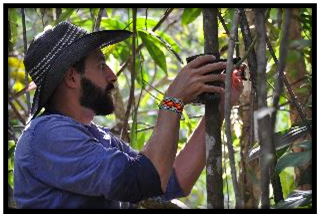
Nicolas Andres Eslava is the founder and director of Afai Consulting BV, a consulting company that provides key insights in little understood extractive value chains and sectors as well as tailored advisory services. His professional interests and experiences revolve around the financing of armed groups and the functioning of informal and illegal economies and their impacts on: socio-economic structures and local communities, armed forces, organised crime, and non-state armed groups. Nicolas has worked intensively across the globe covering the different and interconnected aspects of these subjects. He holds an MSc in Security Studies from University College London and a BA in Political Science from the University of Lausanne with a focus on Political and Development Economics undertaken at the Copenhagen Business School and Copenhagen University. He works in English, French, and Spanish. Afai Consulting B.V. focuses on: i. understanding the (socio-)political economy of extractive value chains; ii. understanding and mitigating the role of legitimate and illegitimate armed actors and criminal groups in the extractive sectors; and iii. Artisanal and small-scale mining (ASM) and its relation to local stakeholders. Afai Consulting works with the communities, private sector, government, and donors to mitigate the negative impacts of resource extraction while maximising the sector’s contribution to people’s aspirations at the local, national, regional, and global level, and, while reducing operational, regulatory, commercial and reputational risk for companies. In addition to Afai Consulting, Nicolas is also a founder and advisor to Fundación Ava Jeva Amazonia, a Colombian foundation dedicated to the conservation and restoration of the Amazonian biosphere in the Caquetá department. He is also, as part of his engagement towards better extractive industries, a member of the Global Initiative Against Transnational Organized Crime.
(Webinar: Illegal Logging and Human Trafficking)
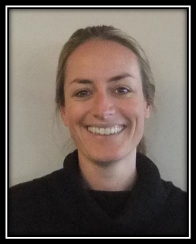
Claire Larner is a Director in the Sustainability and External Relations function at Newmont Mining Corporation working in support of global operations with a focus on external relations and social performance. Prior to joining Newmont, Claire worked as a consultant assisting clients on a range of issues related to their sustainability performance including: the development of corporate standards, supporting guidance and training, stakeholder engagement strategies, human rights due diligence processes and sustainability reporting. Before this, Claire spent eight years working for the leading organization for sustainable development in the extractives sector (the International Council on Mining and Metals). She was responsible for managing multiple projects as part of ICMM’s Social and Economic Development and Reporting and Assurance programs.
(Webinar: Extractive Industry and Human Trafficking)
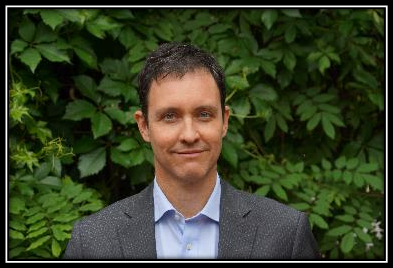
Carlos Busquets is the Director of Public Policy at the Responsible Business Alliance (former Electronic Industry Citizenship Coalition). Carlos has over 12 years of global public policy experience with a focus on sustainability, climate change, international trade and investment. He has worked in both the public and private sectors, including helping lead policy advocacy for the International Chamber of Commerce in Paris and as a former international trade negotiator at the U.S. Department of Commerce. Carlos has an MA from the School of International Service at American University and speaks English, Spanish and French.
(Webinar: Extractive Industry and Human Trafficking)
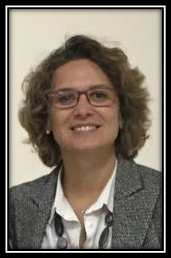
Cristina Duranti is the Director of Good Shepherd International Foundation. Cristina graduated in 1999 from Siena University in Communications and Economics and got her PhD in Economics of Information from the University of Florence. She then worked as a researcher and consultant for Italian universities and government agencies in Economic Policy, Economics of Public Goods, Management of Non-Profit Organizations. In 2007, she was hired by the Good Shepherd sisters to set up the Mission Development Office in Rome, which was incorporated in 2008 as the Good Shepherd International Foundation. Cristina was invited to participate as a CSO partner to the workshops organized by the World Economic Forum and OECD on responsible cobalt since 2016.
(Webinar: Extractive Industry and Human Trafficking)

Livia Wagner is the RESPECT and Global Initiative Network Coordinator and Private Sector Advisor at the Global Initiative against Transnational Organized Crime. Her work covers mainly the issues of human trafficking and business partnerships as well as organized crime with a special focus on Latin America. Previously, Livia worked as the Private Sector Focal Point for the United Nations Global Initiative to Fight Human Trafficking (UN.GIFT). She was also a civil servant for the Austrian Foreign Ministry in the department of development cooperation, concentrating on African countries. Livia has private sector work experience in the travel and tourism sector and has worked for ECPAT in the field of combating commercial sexual exploitation of children. She is also a member of the Austrian Association for Sociology.
(Webinar: Extractive Industry and Human Trafficking)
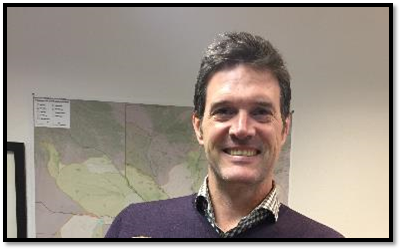
Rob Parry-Jones is the Lead at WWF International‘s Wildlife Crime Initiative. Rob has worked in wildlife conservation for over 20 years, working either as employee or consultant with TRAFFIC, IUCN, the CITES Secretariat, the UN Office on Drugs and Crime, the (Secretariat of the) Pacific Community and WWF – the World Wide Fund for Nature. He started his career in East and Southeast Asia, with a focus on wildlife trade and China – and its trade partners. He has worked in the Pacific (Fiji & Vanuatu), and in Europe, mainly the European Union. He is currently head of WWF’s wildlife crime workstream, which includes a wildlife crime partnership with TRAFFIC.
(Webinar: Illegal Fishing and Wildlife Trafficking)
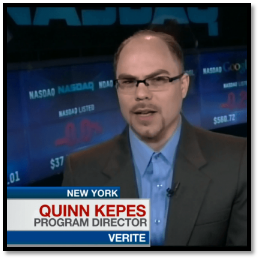
Quinn Sandor Kepes is the Program Director at Verité. Quinn has worked for over ten years at Verité. He has overseen and carried out research and projects on labor and human rights abuses, human trafficking, and organized crime in Latin America, as well as Asia, Africa, Europe, and the United States. Quinn lived in Guatemala for six years, where he worked with NGOs and civil society initiatives and supervised and carried out field research. Quinn has obtained a graduate degree in Human Rights and Political Participation through the Inter-American Institute of Human Rights (IIHR). He also holds a B.A. in Political Science as well as Certificates in International Relations and Latin American Studies from the University of Massachusetts. He is fluent in English and Spanish.
(Webinar: Illegal Fishing and Wildlife Trafficking)

Steven Broad is the Executive Director at TRAFFIC. He has three decades of diverse experience in wildlife trade research, investigations, CITES implementation and regulation support, policy influence and facilitation. Recently, Steven has been particularly involved in gaining better understanding of economics of wildlife trade, the application of behaviour change approaches and mobilising business sector action. He has a BSc in Environmental Studies and is a member of the IUCN Species Survival Commission, a Fellow of WWF UK, a Conservation Fellow of the Zoological Society of London and member of Board of the FairWild Foundation. Steven was also a member of the Global Agenda Council on Organised Crime and Illicit Trade of the World Economic Forum, and participates in the OECD Task Force on Countering Illicit Trade.
(Webinar: Illegal Fishing and Wildlife Trafficking)

Jessica Graham has joined INTERPOL’s Environmental Security Programme as a Strategic Policy Advisor. She is an expert on international policy and nontraditional security threats, including organized crime and wildlife trafficking. Jessica is a former Senior Advisor at the U.S. Department of State where she created the environmental crime program for the Bureau of International Narcotics and Law Enforcement Affairs building a $100,000 program into a $40 million program annually to combat wildlife trafficking. With nearly 10 years of dedicated experience working on environmental and security issues, Jessica has worked across the public, private, and non-profit sectors. Previously she served as a chief negotiator for the U.S. government, championing key transnational organized crime resolutions in multilateral forums, including the UN Crime Commission. As part of the former Presidential Task Force for Combating Wildlife Trafficking, Jessica coordinated and implemented USG efforts to strengthen law enforcement responses and develop capacity building across Africa, Asia, and Latin America. Jessica received her Master’s degree from the University of California, San Diego where she studied International Politics, Environmental Policy, and Chinese Studies and holds a Bachelor’s degree from the University of Florida. She is currently based in Lyon, France. Jessica’s latest publication that she is co-authoring: “Using Script Analysis to Understand the Financial Crimes Involved in Wildlife Trafficking” submitted to Crime, Law and Social Change, January 2018.
(Webinar: Illegal Fishing and Wildlife Trafficking)
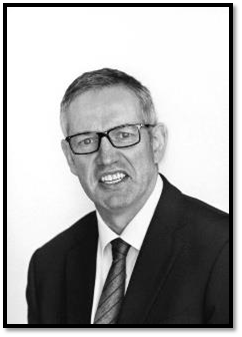
Peter Barnes is the Director of Group i3 Integrated intelligence and investigations at Standard Chartered Bank. Peter has been involved in managing financial crime risk for over 22 years, initially in Metropolitan Police, where as part of the Counter Terrorism Command he led a team charged with identifying and disrupting terrorist finance. More recently, he was the European Head of Investigations at Western Union and now Peter is a Director on the Intelligence and Investigation team at Standard Chartered Bank. His team is responsible for identifying various FC threats and understanding how that risk may be apparent in the bank. Peter is also the chair of the JMLIT EXPERT WORKING Group on Human Trafficking and a lead contributor to the Financial Action Taskforce on Illicit Wildlife Trade.
(Webinar: Illegal Fishing and Wildlife Trafficking)
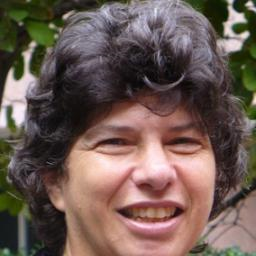
Dr. Louise Shelley is the Omer L. and Nancy Hirst Endowed Chair, Director of the Terrorism, Transnational Crime and Corruption Center (TraCCC) and University Professor at the Schar School of Policy and Government George Mason University. She is an leading expert on the relationship among terrorism, organized crime and corruption as well as human trafficking, transnational crime and terrorism with a particular focus on the former Soviet Union. Dr. Louise Shelley also specializes in illicit financial flows and money laundering. She has just completed an inaugural Andrew Carnegie Fellowship and is completing her book on illicit trade and sustainability under contract with Princeton University Press. Other books include: Dirty Entanglements: Corruption, Crime and Terrorism(Cambridge University Press) andHuman Trafficking: A Global Perspective (Cambridge 2010), Policing Soviet Society (Routledge, 1996).
(Webinar: Human Trafficking & Illicit Cigarette Trade)

Cathy Haenlein is a Senior Research Fellow at National Security and Resilience, Royal United Services Institute for Defence and Security Studies (RUSI). Cathy leads the Institute’s research programme on serious and organised crime. She also focuses on illicit trade and environmental crime, particularly in Europe, East and Southern Africa. Cathy is the Chair of RUSI’s Strategic Hub for Organised Crime Research, established in partnership with the Home Office, National Crime Agency, Foreign and Commonwealth Office, and Research Councils UK. Cathy leads RUSI’s research on illicit tobacco, alcohol and pharmaceuticals, covering the On Tap series, among other projects. She is also a Research Associate in King’s College London’s Marjan Centre for the Study of War and the Non-Human Sphere. She holds an MSc (distinction) in African Politics from the School of Oriental and African Studies, University of London.
(Webinar: Human Trafficking & Illicit Cigarette Trade)
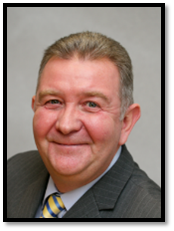
Phil Charlton is the Anti-Illicit Trade Operations Manager – Western Europe, Corporate Development at the Japan Tobacco International. Phil joined the Cheshire Co. Constabulary in 1981 (UK). He then transferred to the Criminal Investigation Division (CID) and worked at various ranks in the following departments, general crime investigation, Drug Squad, Serious Crime Squad. In 1997, Phil became a Detective Inspector to the Regional and then National Crime Squads, where he was responsible for managing cross border, national and international organised crime. Phil then returned to Cheshire Police on promotion, and worked as Detective Chief Inspector and as Detective Superintendent Crime Operations, covering all the specialist crime units. Phil was also a qualified Senior Investigating Officer for Counter Terrorism Offences and worked on a number of Terrorist related offences in the Northwest of England. Following retirement in 2011, he established a UK Private Investigation Company before joining Japan Tobacco International (JTI) in 2013.
(Webinar: Human Trafficking & Illicit Cigarette Trade)

Kristin Reif is the Director of Illicit Trade Prevention at Philip Morris International, where she oversees the development and execution of all anti-illicit trade activities, including anti-counterfeiting and anti-contraband smuggling initiatives. Kristin works closely with law enforcement, regulatory officials and policymakers on the issue of illicit trade and regularly briefs industry and government officials on the connections between the illicit tobacco trade and terrorist financing. Kristin has nearly a decade of experience in the tobacco industry, serving in positions with Altria (Philip Morris USA) in Richmond, Virginia and PMI’s global headquarters in Lausanne, Switzerland. Prior to joining PMI, she was the Vice President of The Tarrance Group, a political consulting firm in Alexandria, Virginia.
(Webinar: Human Trafficking & Illicit Cigarette Trade)
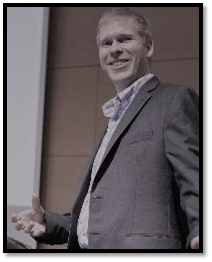
Tom Sabo is a Principal Solutions Architect at SAS. Since 2005, Tom has been immersed in the field of text analytics as it applies to federal government challenges. He presently works internationally on diverse topics including modeling applied to government procurement; best practices in social media analysis; and using analytics to leverage; and predict research trends. Tom also served on a panel for the Institute of Medicine’s Standing Committee on Health Threats Resilience to inform the U.S. Department of Homeland Security (DHS)/ Office of Health Affairs (OHA) on social media strategies. Tom has a bachelor’s degree in cognitive science and a master’s in computer science, both from the University of Virginia.
(Webinar: Cybercrime and Human Trafficking)
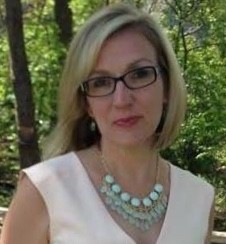
Anna Cunningham is a Vice President of Enterprise Financial Crimes Compliance at U.S. Bank, where she manages the Emerging Risks and Typology development team whose primary purpose is to coordinate with federal law enforcement on emerging threats in money laundering and terrorist financing. In that capacity, her team employs the use of big data typology development to identify human trafficking, terrorist financing, informal value transfer networks, and other money laundering schemes. Prior to joining U.S. Bank, Anna spent time in specialized Anti-Money Laundering (AML) investigations group at J.P. Morgan Chase & Co. and First Data, with a primary focus on emerging trends in Money Laundering and Terrorist Financing. Anna began her career in academia, receiving a Ph.D. in Sociology and Demography, where she focused on population behaviors and social changes, including globalization and the black market economy.
(Webinar: Cybercrime and Human Trafficking)
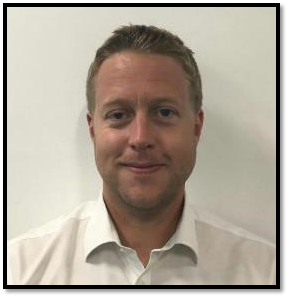
Adam was appointed to the role of Manager Cyber Financial Intelligence for Standard Chartered Bank in April where he is responsible for developing the Bank’s intelligence capability at the nexus of financial and cybercrime. Adam previously worked in the Bank’s internal investigations unit, leading on investigations in the Europe and America’s region and globally on all cyber related matters. Prior to joining Standard Chartered, Adam was part of the Bank of England’s first Cyber Intelligence and Investigations Unit focusing on threats both to the organisation and wider financial system in the United Kingdom. Previously Adam held a number of government roles including as a Data Protection and Freedom of Information specialist, an analyst on a Northern Ireland collusion inquiry and as an investigator at the Independent Police Complaints Commission, responsible for reviews of alleged serious police misconduct.
(Webinar: Cybercrime and Human Trafficking)
Eleonora Forte is a Senior Agent – Strategic Analysis in the Strategic Analysis Team, Horizontal Operational Services Business Area, Operations Directorate at EUROPOL.
(Webinar: Cybercrime and Human Trafficking)


